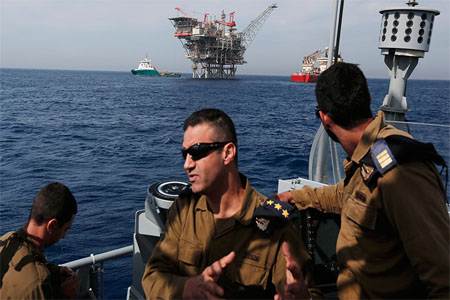
Afrasianet - A long-running dispute between Israel and Lebanon over a maritime border in the Mediterranean Sea has reached boiling point as both sides want to secure multibillion-dollar energy investments from the oil and gas rich area.
Lebanese politicians have reacted with anger over a bill in the Israeli parliament that would seek to establish the country’s sovereignty over the territory.
Israeli officials said they aim to resolve the dispute through dialogue and mediation but also need to assert their rights after Lebanon’s decision to put out tenders for the seabed exploration work.
“The Lebanese government proposed some licenses that also include the disputed territory,” Israel’s Energy Minister Yuval Steinitz told the Financial Times. “Before, it was the status quo that nobody does anything in the disputed area.”
Israel asked the UN to ensure that Lebanon respects international law with regards to the maritime bloc. According to Steinitz, the purpose of the maritime areas bill under discussion is to “clearly identify the different maritime areas and the Israeli laws which apply there, in accordance with international law.”
The minister expressed confidence that in the next year or two the dispute will be resolved through some kind of dialogue or mediation.
However, the Speaker of the Lebanese Parliament Nabih Berri has warned the Israeli bill claiming the 860 square kilometer zone was a “new attack on Lebanon’s sovereignty” and a “declaration of war.”
“If [Israel] continues with its expansionist plot through the government and the Knesset [Israeli parliament – Ed.], that means that the spark of war is looming on the horizon,” said Berri.
He added Lebanon “will not be quiet and we will not accept any compromise on our people’s rights to these resources, which have a degree of holiness to us.”
Lebanon has struggled to attract interest in its prequalification bidding round for oil and gas exploration. Experts point to the dispute which was deterring potential investors.
“It’s pretty serious, and it’s one of the reasons we’re not entering the bids,” an unnamed energy executive told the FT. “There’s already enough risk in offshore drilling — to get involved in disputed territories between two countries at war?”

